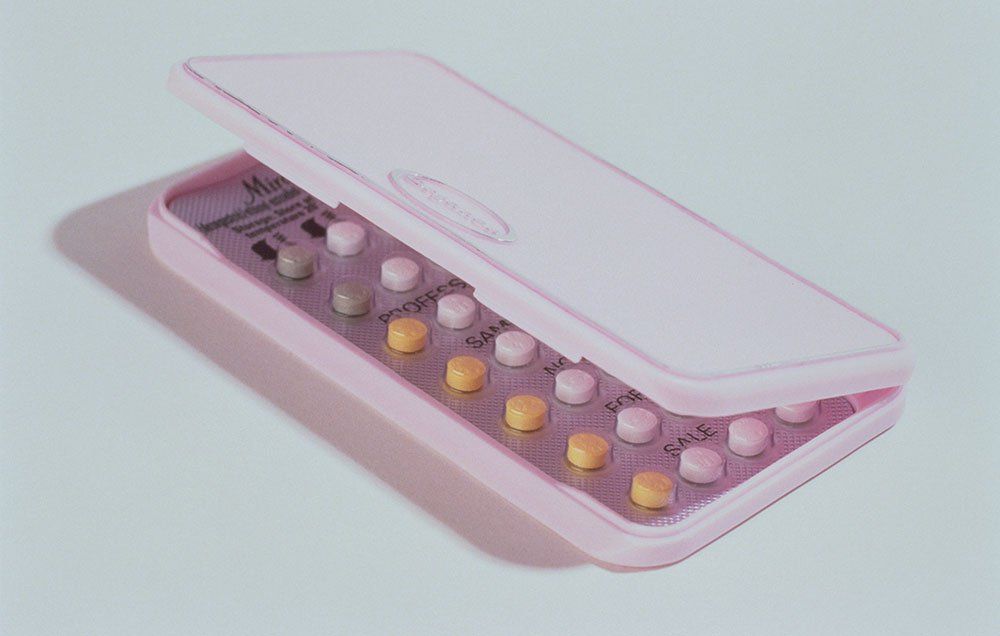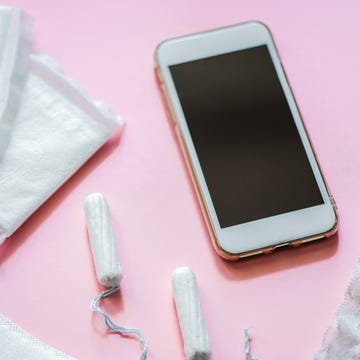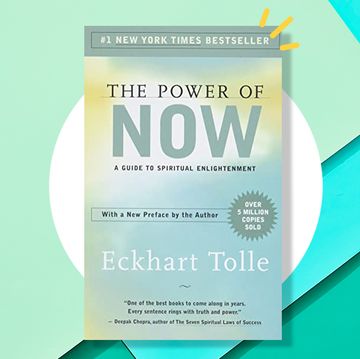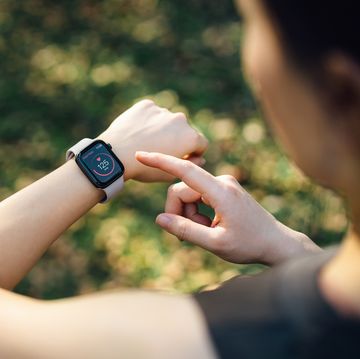When you hear the question, "What is birth control used for?" your first thought is probably to prevent pregnancy. While that's its main purpose, you can also use the pill for non-contraceptive reasons.
“Oral contraceptives are an orally delivered pill that’s taken daily, and contains hormones,” says Sloan Shah, MD, an ob-gyn at The South Bend Clinic. “All oral contraceptives have progesterone, and some called combination pills have progesterone plus estrogen.” But they all have one goal: to stop or reduce ovulation.
But the pill can also address hormonal imbalances. “We call them birth control pills, but a lot of the time we use them as hormonal pills,” says Raj Vito Shah, MD, an ob-gyn at The South Bend Clinic. A woman's hormones are controlled by the pituitary gland, thyroid gland, adrenals, and ovaries, and if any of them are not functioning well, there can be an imbalance. “These hormonal pills can override a woman’s body, so you get a set amount of estrogen and progesterone each day and throughout the month, which can help level out the hormones,” explains Dr. Vito Shah.
More From Women's Health

Oral contraceptives are generally safe with minimal risks, but if you have high blood pressure, migraines, a history of blood clotting, or are a smoker, make sure to check in with your doctor before taking the pill, says Dr. Sloan Shah. “Most people should have some sort of medical exam, whether it’s with an ob-gyn, nurse practitioner, or midwife, once a year to review usage, especially if there are side effects or things related to using the pill that aren’t what you expect.”
Okay, so what else can the pill really do? Here are other situations where you'd want to consider oral contraceptives, according to ob-gyns.
Meet the experts: Alyssa Dweck, MD, is a practicing gynecologist in Westchester County, New York. She has been voted “Top Doctor” in New York Magazine and Westchester Magazine. She is a consultant at Massachusetts General Hospital and Vincent's Memorial Ob/Gyn Service, and an adjunct assistant professor of obstetrics & gynecology at New York Medical College.
Sloan Shah, MD, has been a practicing gynecologist for more than 20 years. She has great interest in adolescent gynecology, hormonal and menstrual disorders, menopause transition, and minimally invasive surgery.
Raj Vito Shah, MD, specializes in complicated pregnancy, obstetrical and gynecological ultrasound, robotic and minimally invasive surgery, and treatment of incontinence.
1. It helps with premenstrual syndrome (PMS).
Over 90 percent of women experience PMS symptoms usually a week or two before their period, which may include fatigue, mood swings, irritability, bloating, and breast tenderness. And they’re typically caused by a change in hormones, says Dr. Raj Vito Shah. “It’s not that a woman is high or low in those hormones, but it’s the change or drop in hormones,” he says. “When there’s a change from the first half to the second half of the cycle, that’s what induces symptoms of PMS in its most severe form.”
Because the pill delivers a steady dose of estrogen and progesterone throughout the month, it can help reduce the hormone fluctuation that causes PMS, Dr. Shah explains.
2. It can make endometriosis bearable.
With this painful condition, tissue that normally grows inside the uterus (and sheds during your period) also grows outside of it, commonly on the ovaries, bowel, and bladder. This excess tissue causes swelling, inflammation, and scarring, which leads to extreme pain.
The pill will decrease the severity of monthly menstrual symptoms, says Alyssa Dweck, MD, an assistant clinical professor of obstetrics and gynecology at New York Medical College, which means that there will be less monthly uterine buildup, less shedding, and, for those with endometriosis, even less migration and growth of uterine tissue throughout the body. This all adds up to less pain.
3. It can conserve your blood.
How much red you see in each month varies from woman to woman. If your flow is really heavy, though, it could potentially up your chances of anemia, resulting in fatigue and lack of energy. The pill can help by lessening your monthly tides. "Basically, the Pill thins out the lining of the uterus, and less lining means less bleeding each month," says Dr. Dweck.
So, will the pill stop periods entirely? Maybe. Some brands include 21 days of active hormone pills and seven days of inactive or placebo pills. When you take the inactive pills, menstrual-like bleeding occurs. However, because the uterine lining is thinner, it’s technically not the same bleeding or amount of shedding as a normal period, says Dr. Sloan Shah.
Some women take three-, 10-, or 12-month active pills with no placebo, which eliminates a period for that amount of time. If your period does disappear while on the pill, it will return once you start taking the inactive placebo. And if you stop taking hormonal pills entirely, your period will come back within two to three months, says Dr. Shah. But not everyone responds to the pill the same way and some may continue to have their periods, he adds.
4. It can save you money on foundation (and waxing).
Pimples can often be cleared up by contraceptives. The same thing goes for the few stray hairs on your chin. Those two nuisances are often caused by an excess of androgens, a type of hormone (testosterone is one), in the body. "When you're on birth control pills, your liver makes a protein that prohibits testosterone from floating around in your bloodstream, lowering acne and unwanted hair growth," says Dr. Dweck.
5. It can offer some cancer protection.
Fifteen years of pill-taking can cut your risk of developing ovarian cancer by 50 percent; for endometrial cancer, that number shoots up to 70 percent, according to a study in Best Practice & Research Clinical Obstetrics & Gynaecology.
Ovarian cancer protection comes from stopping ovulation, says Dr. Dweck. "The thought is that the repetition of ovulation over many years can up the chance of ovarian cancer, but the pill prevents that," she says. The prevention of uterine cancer is similar—since the pill thins out the uterine lining, less tissue buildup means a lower risk of developing the disease. However, know that oral contraceptives may increase your risk of developing breast and cervical cancers, due to higher levels of estrogen.
6. It can shield against pelvic inflammatory disease (PID).
Pelvic inflammatory disease is a sexually transmitted infection of the female reproductive organs. Left untreated, it can cause chronic pelvic pain or infertility. And while the birth control pill doesn't protect against the sexually transmitted infections that may cause PID, it can still offer protection by thickening your cervical mucus, making it more difficult for infected bacteria to make it to your uterus, fallopian tubes, or ovaries.
7. It can help with polycystic ovary syndrome (PCOS).
Normally, a woman's body releases at least one egg each cycle, but with polycystic ovary syndrome, those mature eggs aren't released and instead stay in the ovaries, which can lead to infertility. Other symptoms of PCOS include irregular periods and excess body hair. Because hormone imbalances are at the root of this issue, contraceptives can help regulate your levels so your body releases eggs on time and sticks to a regular menstrual cycle.
8. It can help you chill through perimenopause.
Normally, birth control is associated with women of childbearing age, but staying on the pill while you're going through menopause can make the transition a little easier. "It helps keep your hormone levels balanced and controls some menopause symptoms like hot flashes, night sweats, and irregular bleeding," says Dr. Dweck.
9. It can keep you healthy during flu season.
Women who take an oral contraceptive with estrogen may have more protection from the flu virus than others, according to a study in the American Journal of Physiology – Lung Cellular and Molecular Physiology. Researchers found that estrogen levels in pill takers reduced the amount of flu virus that replicated in infected cells nearly 1,000-fold, compared with the cells that weren't exposed to estrogen. The increased estrogen levels didn't have the same effect on male participants, as their normal estrogen levels are already much lower than those of women.
And because hormone levels in pre-menopausal women not on the pill fluctuate throughout the month, simply being female isn't enough to offer flu protection. But it's not recommended that women begin taking oral contraceptives to protect themselves against the flu. "If women are taking estrogen-like hormones for other reasons, an added benefit might be less susceptibility to influenza during flu season," says Sabra Klein, PhD, a study author, in a press release.
10. It can reduce migraines.
Many women experience a migraine that is tied to their menstrual cycle, a.k.a. a hormone headache, which starts before or during a period and usually happens every month. “These migraines are related to a drop in estrogen before the cycle, and that drop of estrogen then induces a migraine,” says Dr. Raj Vito Shah. Taking a hormonal birth control pill can help keep estrogen levels consistent throughout the menstrual cycle and ultimately prevent those migraines.
11. It can ease painful periods.
Dysmenorrhea is the medical term for painful menstrual cramps that occur before or during your period. They are caused by chemicals called prostaglandins that are released from the lining of the uterus. During your period, your uterus contracts to help expel its lining, and higher levels of prostaglandins are associated with more severe cramps. You can't eliminate prostaglandins, but the pill can help reduce the release by thinning the uterine lining.
Plus, the heavier or longer the period, the more blood inside the uterus. The uterus then contracts to get rid of that blood. “The more blood in there, the more contractions that cause pain,” says Dr. Raj Vito Shah. But since a hormonal birth control pill reduces the uterine lining, there will be less blood. Being on the pill can shorten the cycle or reduce the amount of blood in the uterus, which will hopefully reduce the cramps that are associated with it, says Dr. Shah.
Amber Brenza is the health editor at Women's Health, and she oversees the website's health and weight loss verticals. She has years of expereince interviewing top medical and nutrition experts, as well as interpreting peer-reviewed studies in order to give readers a clear and concise understanding of the latest health news and topics. Amber has her master’s degree in journalism from Syracuse University and has held editorial or writing positions at Men’s Health, Prevention, Dr. Oz The Good Life, Tonic, and SELF prior to working at Women's Health.
Andi Breitowich is a Chicago-based writer and graduate student at Northwestern Medill. She’s a mass consumer of social media and cares about women’s rights, holistic wellness, and non-stigmatizing reproductive care. As a former collegiate pole vaulter, she has a love for all things fitness and is currently obsessed with Peloton Tread workouts and hot yoga.












